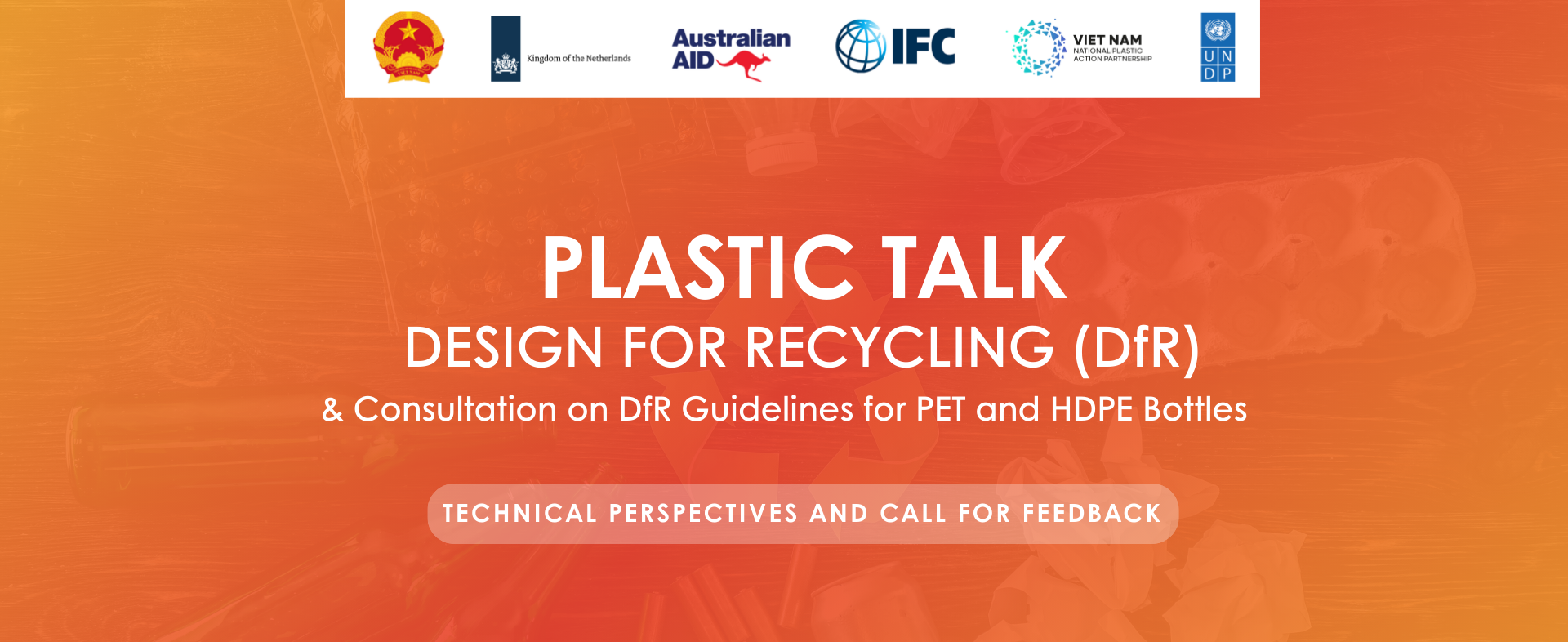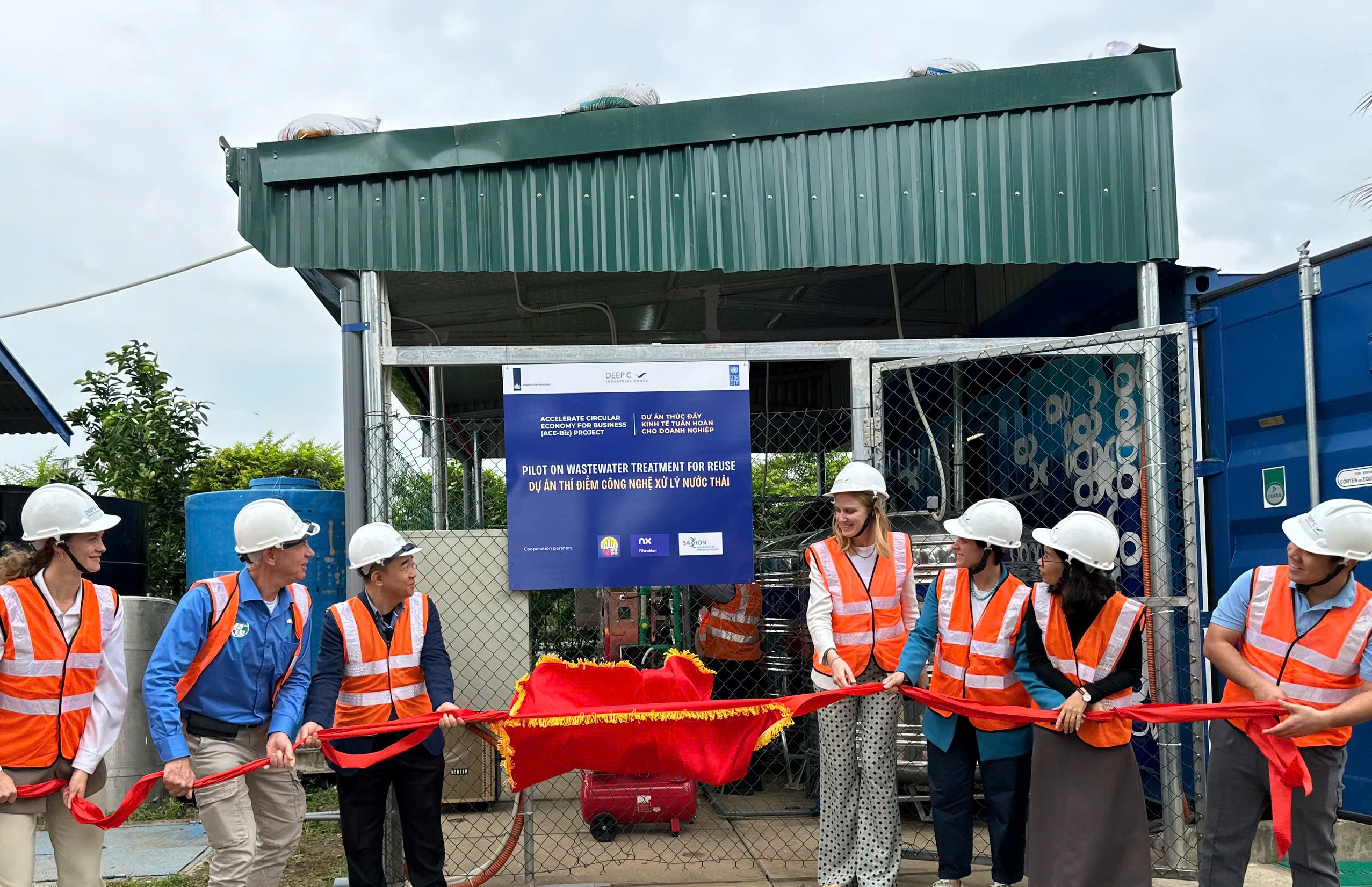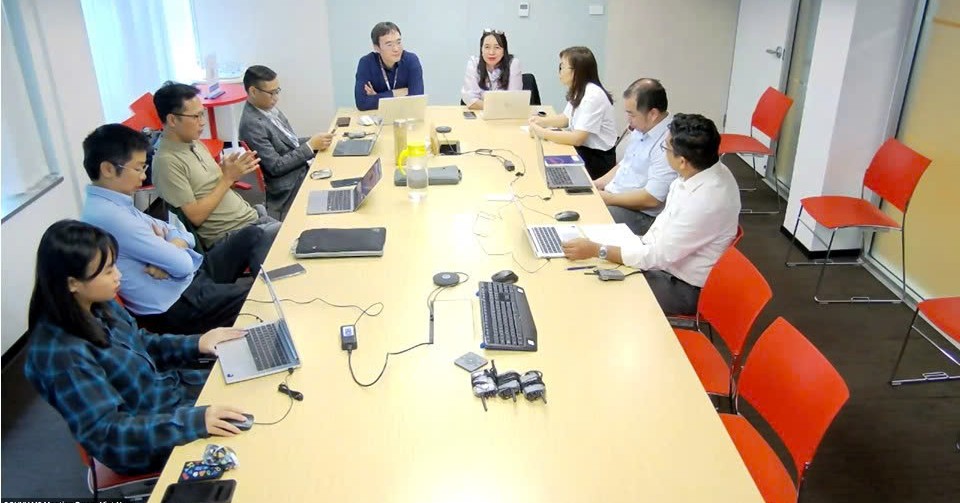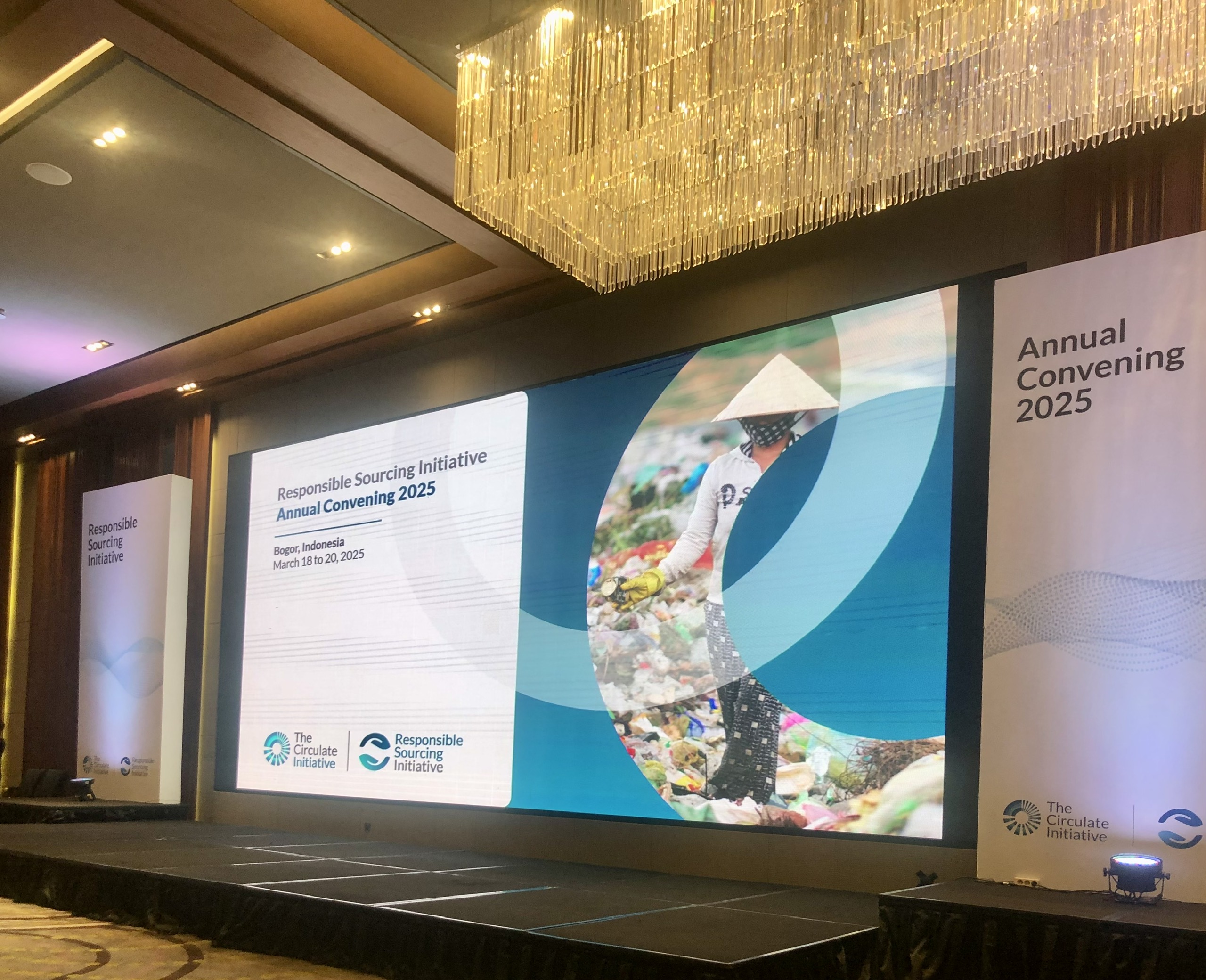
UNDP, coordinating The Circulate Initiative’s Responsible Sourcing Initiative (RSI) in Viet Nam, participated in a three-day convening in Bogor, Indonesia, from March 18-20, 2025. The event provided updates on projects implementing the Harmonized Responsible Sourcing Framework in Viet Nam, India, Indonesia, and Kenya.
During the event, participants discussed broader responsible sourcing topics, focusing on incorporating labor rights considerations into plastics recycling equitably, effectively, and compliantly, particularly given increasing regulatory demands. The event gathered around 100 participants, including representatives from recyclers, waste worker leaders, and alliance organizations leading pilot projects across the four countries.
Participants also undertook a field visit to Amandina Bumi Nusantara’s vertically integrated supply chain in Jakarta, gaining insights into the recycler’s high level of control and verification of business compliance within the supply chain. Additionally, a field trip was organized to a local waste bank, a community-level model for waste treatment in off-grid rural areas where formal collection and treatment systems are absent. This model has been institutionalized in Indonesian law.
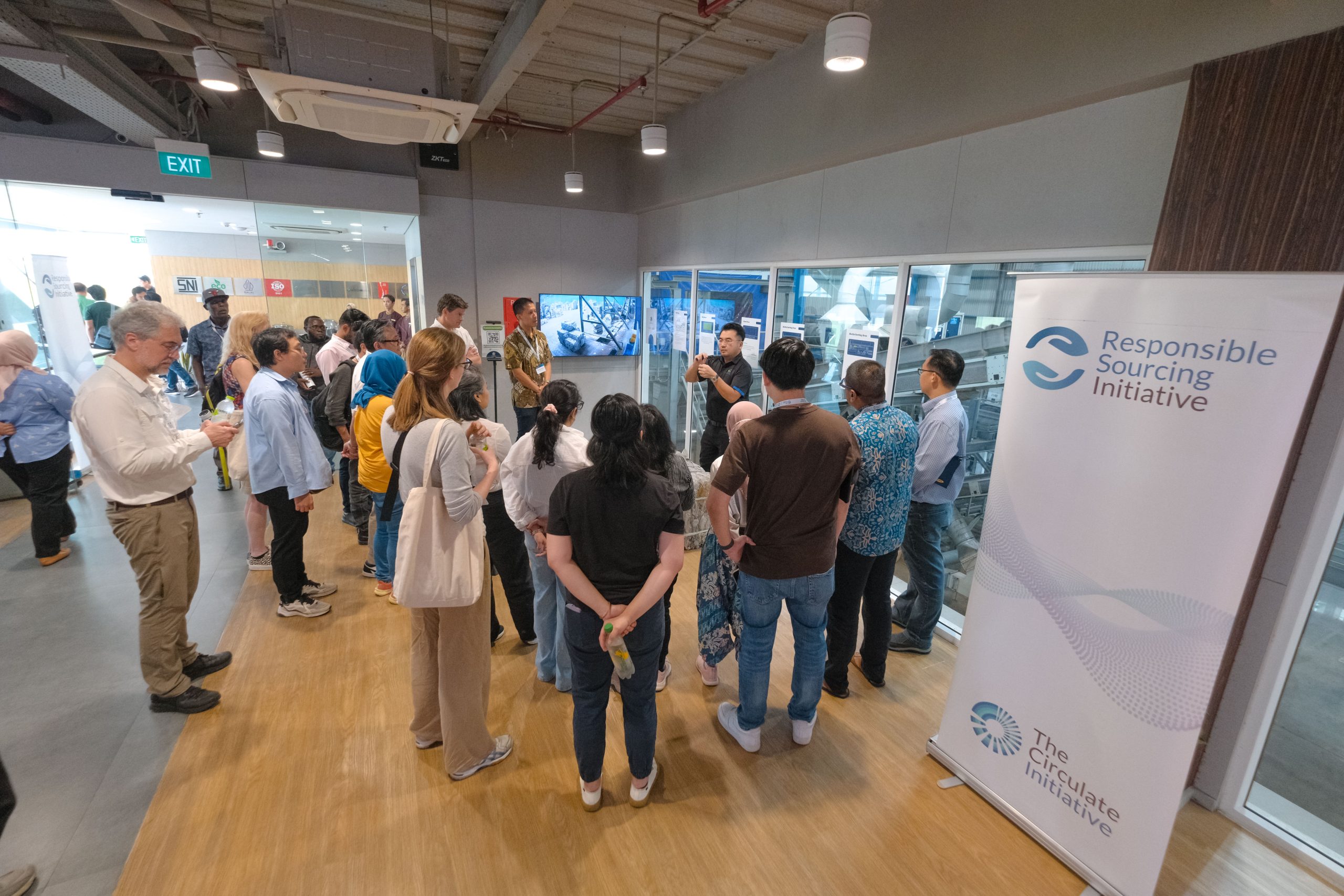
A representative from Amandina Bumi Nusantara is explaining the production procedure of the facilities
Representatives from UNDP Viet Nam presented the baseline results of the RSI in Viet Nam, focusing on the supply chain of Duy Tan Recycling. The assessment identified several strengths. Notably, most workers have worked in the sector for many years and express interest in continuing this career. Furthermore, large waste aggregators of the supply chain demonstrated compliance with local legal regulations regarding working hours. However, many existing challenges, particularly in the economic sphere, persist. Market price fluctuations pose a significant obstacle to fair pricing, contribute to income instability for informal waste workers, and cause supply inconsistencies. The lack of official recognition of informal waste collection as a profession further contributes to the limited support received by this sector. This hinders access to low-interest capital for large aggregators, junk shops, and informal waste workers, limiting their opportunities for business expansion.
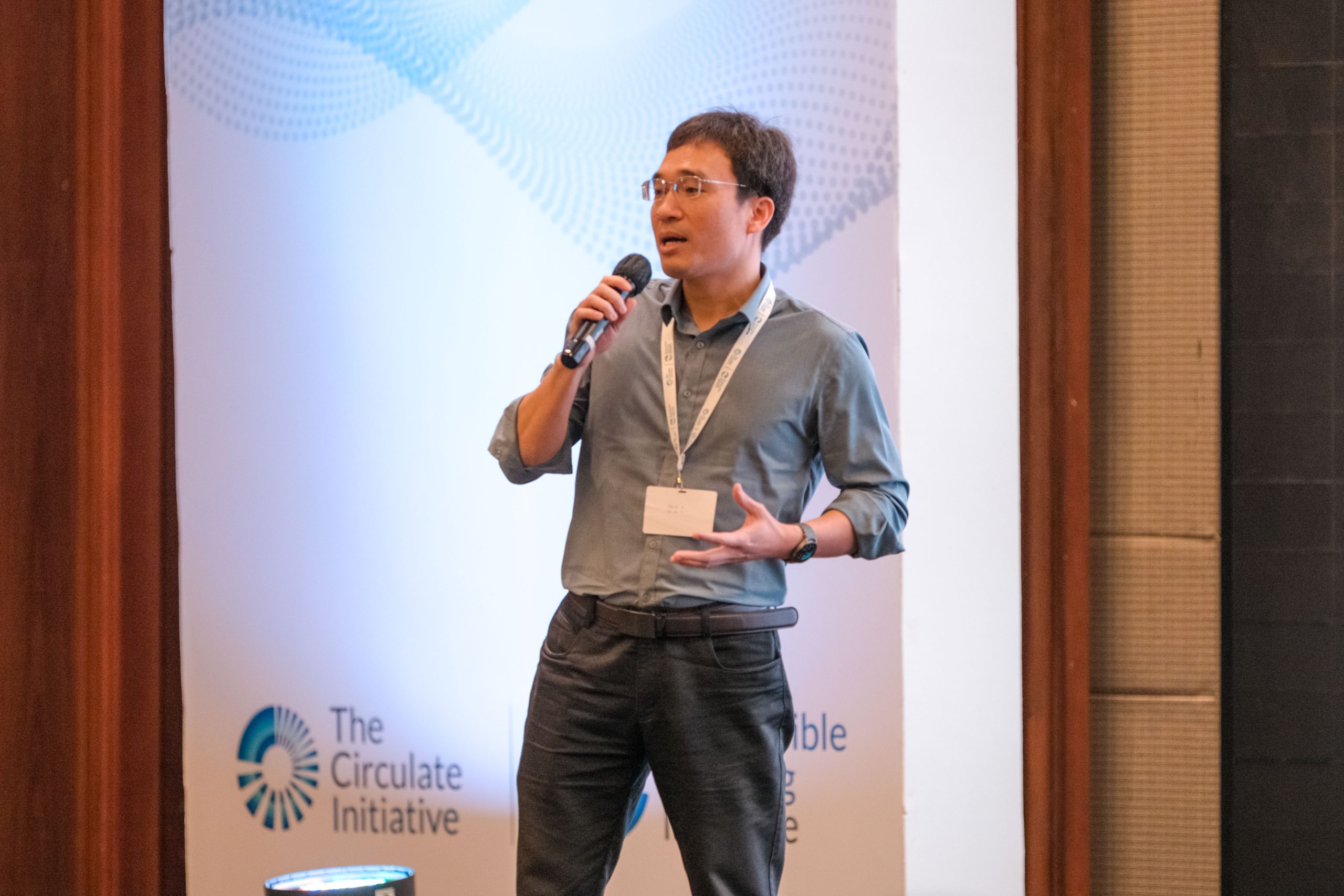
Mr. Hoang Thanh Vinh, UNDP Viet Nam is presenting about the baseline assessment in Viet Nam’s project
To solve this problem, UNDP is advocating for a shift in terminology from ‘informal waste workers’ to ‘freelance waste workers.’ This shift aligns with the Vietnamese legal context, where ‘freelance workers’ are recognized under the Labor Law, encompassing a significant portion of the economy (estimated at over 65% by the General Statistics Office, 2024), including those in the waste sector. Adopting language consistent with the local political and legal framework aims to enhance government recognition, potentially facilitating support in areas like economic empowerment, health, and safety, as outlined in the Harmonized Framework.
In addition, UNDP is actively working to enhance access to low-interest loans for junk shops and waste buyers through a comprehensive value chain approach. This ensures product off-take for each tier in the supply chain and builds trust – a fundamental element for business in the recycled plastic value chain.
The event also showcased Inclusive Extended Producer Responsibility (EPR) as a potential sustainable funding mechanism to address the financial challenges of implementing responsible sourcing. The Waste Picker Registration System in Africa was presented as an example. This system was designed to identify and recognize informal waste workers, providing them support through resources generated from EPR and tackling the critical issue of traceability in responsible sourcing.
The investment opportunities in plastic circularity are tremendous, but at the same time, they face significant challenges. Supply inconsistency, driven by seasonality and other factors, creates volatility. The international recycling industry faces growing pressure from higher consumer expectations and evolving laws (like the Corporate Sustainability Due Diligence Directive). Through initiatives like the RSI, stakeholders can collectively develop investment and business models that integrate responsible sourcing, improve labor rights for informal waste workers, and share risks and rewards across the entire plastic value chain.














